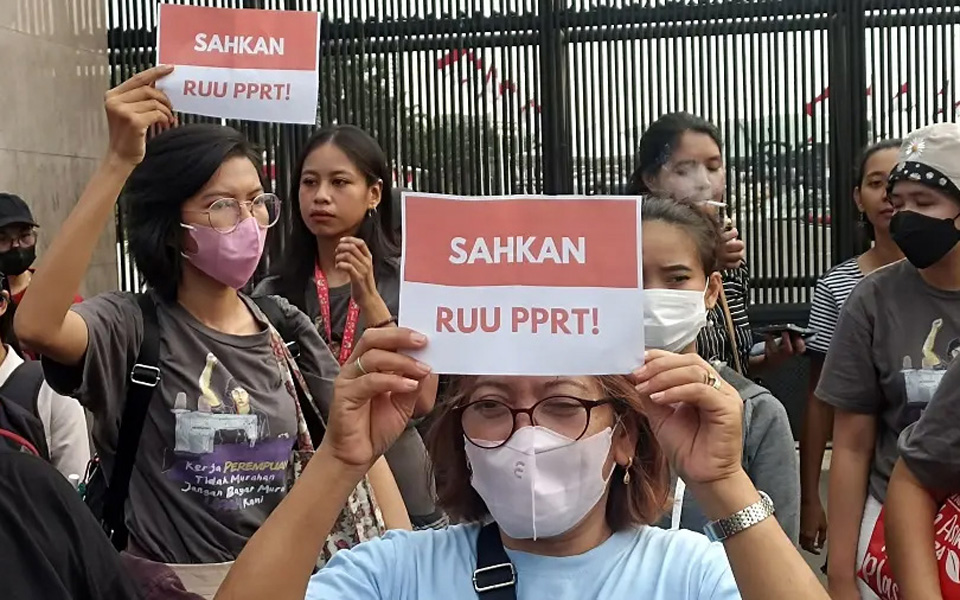Jakarta – The institutionalisation of discrimination based on gender, ethnicity, religion and beliefs is causing women, particularly those from minority groups, to progressively lose their sense of security. The terror that they face includes threats to life.
“Since 1999 up until early March 2011 there were 195 discriminatory policies found at the national, provincial and regency level”, said Arimbi Heroeputri from the Monitoring Division of the National Commission on Violence Against Women (Komnas Perempuan) during the launch of Komnas Perempuan 2010 Annual Report in Jakarta on Monday March 7. This, the 10th annual report by Komnas Perempuan marks the 100th commemoration of International Women’s Day on Tuesday March 8.
Quoting from the report titled Terror and Violence against Women: The State has Lost Control, Arimbi added that there are only 46 policies that support the implementation the constitution’s mandate to end violence and discrimination against women by November 2010.
The number of discriminative polices as of early March 2011 has risen from 154 (March 2009) and are spread across more than 100 regencies and 25 provinces. The six provinces that are most fond of issuing discriminative by-laws, including the banning of the Ahmadiyah religious sect, are the provinces of West Java, West Sumatra, South Kalimantan, Sulawesi Selatan, West Nusa Tenggara and East Java.
“In all the conflicts that smack of religion, women and children are the principle victims”, said Komnas Perempuan Commissioner Ninik Rahayu.
Spreading hatred
The state has lost control and not yet prepared mechanisms to respond to these policies. “The state fails to act firmly against perpetrators, on the contrary it appears [the state] is permitting it, even though victims pay with their lives. This represents a violation of human rights”, said Komnas Perempuan Chairperson Yunianti Chuzaifah.
The report recorded that 863 cases of violence against women in 2010 were committed by state officials and public figures. In particular it noted statements by five pubic officials and four officials in the education sector that violated public ethics by promoting hatred and discrimination.
Ninik underlined that there is a recurring pattern of human rights violations against migrant workers (TKI). I Wayan Paga from the National Agency for the Placement and Protection of Overseas Labor (BNP2TKI) commented that the according to the report, around 200 out of 1,000 migrant workers return home to Indonesia with problems.
No improvement
In addition this, attacks based on sexual orientation and gender identity also continued throughout 201. “The enactment of Law Number 44/2008 on Pornography also discriminates against female victims”, said Ninik.
The report notes that 105,103 cases of violence were handled by 384 service agencies in 2010, a drop of 27 percent on the previous year. According to Komnas Perempuan Commissioner Yustina Rostiawati however, this does not mean that the situation is improving, but is because of a decrease in the capacity of service provider agencies that are operated by the state.
“The recorded figure is only the tip of the iceberg”, said Yustina. As a comparison, Poppy Retnoadji from the Ministry Women’s Empowerment and Protection of Children said that in Erom, Papua, one village chief resolves five cases of violence against women per day. (MH/IND)
Source: Diskriminasi: Negara Kehilangan Kendali – Kompas. Selasa, 08 Maret 2011
[Translated by James Balowski.]















